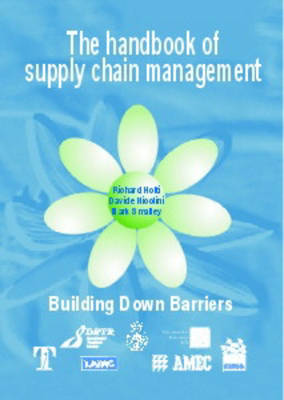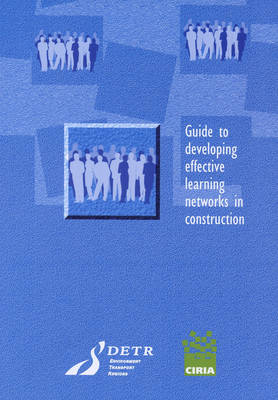CIRIA Publication
2 total works
C546
The Handbook of Supply Chain Management:
by R. Holti, Davide Nicolini, and M. Smalley
Published 31 July 2000
This handbook has been developed by The Tavistock Institute to present the generic lessons from the "Building Down Barriers" approach to supply chain management. Building Down Barriers (BDB) has been piloted on construction projects for Defence Estates on behalf of the Ministry of Defence. Project leadership from the MoD, close and active support from the DETR, encouragement and endorsement from HM Treasury and the enthusiastic involvement of two major construction contractors, AMEC and Laing, have resulted in this publication. BDB is a systematic and managed approach to procurement and maintenance of buildings based on a pre-assembled supply chain, delivered to the client through a single point of responsibility known as the prime contractor. It is based on seven underlying principles covering competition through value, understanding clients' real needs, developing long-term supplier relationships, integrating project activities into clusters, using target costing, implementing continuous improvement and developing human resources.
The pilot projects have shown significant benefits for the client (operating both as budget-holder and end-user of the facility) and for the supply chain. These benefits have been in terms of faster delivery on site, improved productivity of the site workforce, improved profitability for the supply chain, reduced through-life cost for the budget holder and improved functionality of the building for the users. This publication provides a constructive toolset which the construction industry can take up to deliver the radical reforms demanded by the Deputy Prime Minister. In pilot projects, it has delivered productivity and quality improvements and proved beyond doubt that the BDB toolset provides the industry with a viable route map for radical change.
The pilot projects have shown significant benefits for the client (operating both as budget-holder and end-user of the facility) and for the supply chain. These benefits have been in terms of faster delivery on site, improved productivity of the site workforce, improved profitability for the supply chain, reduced through-life cost for the budget holder and improved functionality of the building for the users. This publication provides a constructive toolset which the construction industry can take up to deliver the radical reforms demanded by the Deputy Prime Minister. In pilot projects, it has delivered productivity and quality improvements and proved beyond doubt that the BDB toolset provides the industry with a viable route map for radical change.
C508
Guide to Developing Effective Learning Networks in Construction
by R. Holti and S. Whittle
Published December 1999
Learning networks are a powerful mechanism for spreading good practice in all aspects of construction work and for encouraging effective innovation. However, there is confusion over what constitutes a "learning network" and how it may best be employed to benefit a company, individuals or the industry as a whole. This book aims to address these issues in a clear, logically structured way. It focuses on subscription-based networks aimed at promoting better practice in UK construction. It is a practical, accessible guide for anyone planning, setting up or already running a learning network, and can be used to help design a network that will meet the specific learning needs of a given target membership. The guide includes checklists that could be of considerable practical help. Two related project reports are also available on the research background to this topic.

